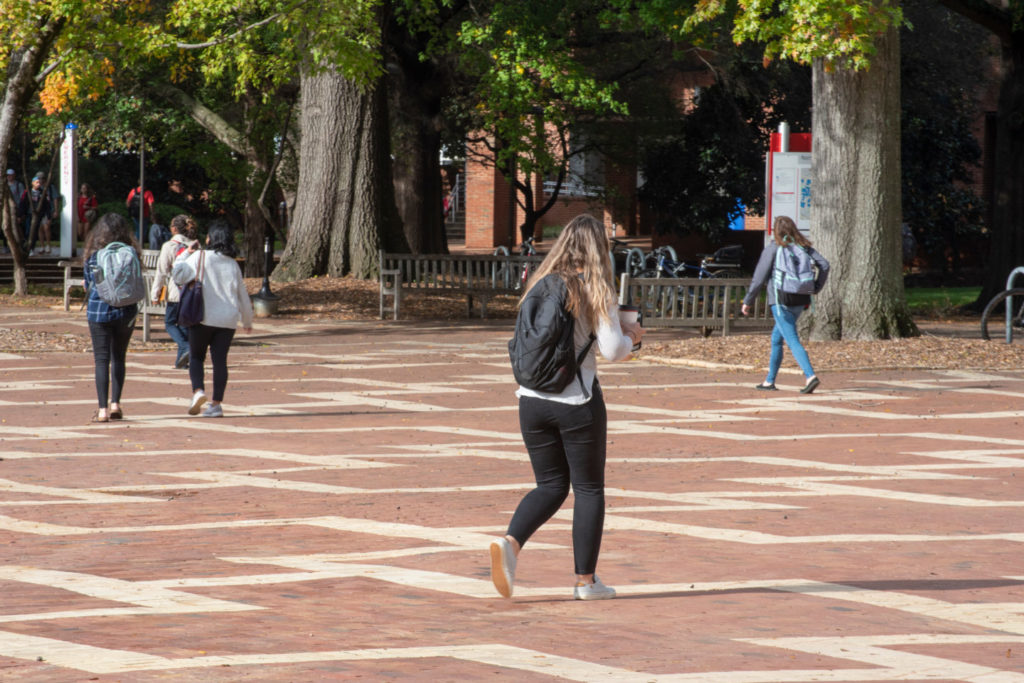Free speech suffering at many top universities across the country
(The Center Square) – Tensions over free speech have been intensifying on college campuses across the United States.
From campus speakers to what professors can and cannot say, more speech is…

(The Center Square) – Tensions over free speech have been intensifying on college campuses across the United States.
From campus speakers to what professors can and cannot say, more speech is coming under question, according to a new survey of more than 55,000 on 254 U.S. campuses.
The concerns aren’t just at private schools. Several public schools show up high on the list of campuses where free speech is coming into question.
Some of the schools ranked near the bottom of the list for protecting speech, like Harvard and Georgetown, are private institutions.
But the University of Pennsylvania and University of South Carolina are public schools ranked poorly for free speech.
South Carolina ranked “very poor” on speech climate and disinvited two speakers between 2019 and 2023.
Michigan Tech, Auburn, New Hampshire, Oregon State, Florida State and Virginia ranked as the best colleges and universities for protecting free speech.
Of the bottom five ranked schools, according to the Foundation for Individual Rights and Expression, deplatforming attempts have been successful 81% of the time. And, of those surveyed, 72% of students opposed allowing a conservative speaker on campus while 43% opposed allowing a liberal speaker.
Some states and universities have been working, and paying, to combat what many feel are free speech issues at the nation’s colleges and universities.
Tennessee Gov. Bill Lee, for instance, issued a statement after an event at Yale Law School when a bipartisan free speech event involving two groups from opposite sides of the political spectrum that fought together for a First Amendment case in front of the U.S. Supreme Court was shut down due to protesting law students.
Lee connected it to his bill and initiative to start the Institute of American Civics at the University of Tennessee in Knoxville.
“We are endeavoring to establish the University of Tennessee Institute for American Civics to be the antidote to the cynical, un-American behavior we are seeing at far too many universities,” Lee said at the time. “The Institute for American Civics will be a flagship for the nation – a beacon celebrating intellectual diversity at our universities and teaching how a responsible, civic-minded people strengthens our country and our communities. Representatives from Alliance Defending Freedom and the American Humanist Association, who had such a terrible experience at Yale, are invited to join us in Tennessee anytime.”
The new department cost the state nearly $6 million to get started last fiscal year and will have a recurring cost of $4 million annually. Tennessee was ranked 97th with an “average” rating in the survey. In 2022, FIRE wrote to the school about its “diversity action plans” and how they thwart free speech.
Ohio state Sen. Jerry Cirino, R-Kirkland, has made a similar push in his state, pushing the Ohio Higher Education Enhancement Act, which he said is designed to ensure freedom of speech, diversity of thought and opinion, and academic integrity at Ohio’s state institutions of higher education.
The bill would ban mandatory diversity, equity and inclusion courses and training for students and staff unless required for certification or grants. Senate Bill 83 passed the Senate but was pushed to committee in the House.
“No student should ever be ostracized, canceled, or have to worry about a failing grade for merely daring to have a difference of opinion with classmates or a professor,” Cirino said of the bill. “It is essential for students to learn how to think rather than what to think, and how to listen to opposing views with a respectful but critical ear.”
FIRE President and CEO Greg Lukianoff said it was positive to see university presidents taking free speech seriously but believes that the country’s top private institutions – such as Harvard, Georgetown, Northwestern and Dartmouth – should lead the way instead of ranking poorly or, in the case of Harvard, it was the only school with an “abysmal” ranking.
“We are very pleased to see that a number of university presidents are taking the issue of freedom of speech and academic freedom seriously by signing on to free speech initiatives,” Lukianoff said. “However, they have a long way to go toward restoring public trust. After all, an environment in which you can actually get in trouble for the ‘wrong’ academic opinion is not one that can be depended upon to produce reliable knowledge.”
A new survey of college faculty in Texas, Florida, Georgia and North Carolina, however, said that teachers are now unwilling to come to Florida due to what they believe is political interference in teaching.
Instead, faculty has looked to move to New York, California, Massachusetts and North Carolina. In response to the survey of 4,250 faculty members, the United Faculty of Florida said that Gov. Ron DeSantis’ policies are hurting the state’s colleges and universities and the group will continue to advocate for the “rights of all faculty to live, work, and teach free from political intimidation and censorship.”
Nearly half of the Florida survey respondents – almost 300 of 642 – said they plan to seek employment in another state over the next year while 545 said they would not encourage a graduate student or faculty colleague in another state to come to Florida.
While Florida State and the University of South Florida had high rankings for protecting free speech on campus, both the University of Florida and University of Central Florida ranked “poor” on the list at 231st and 235th, respectively.



